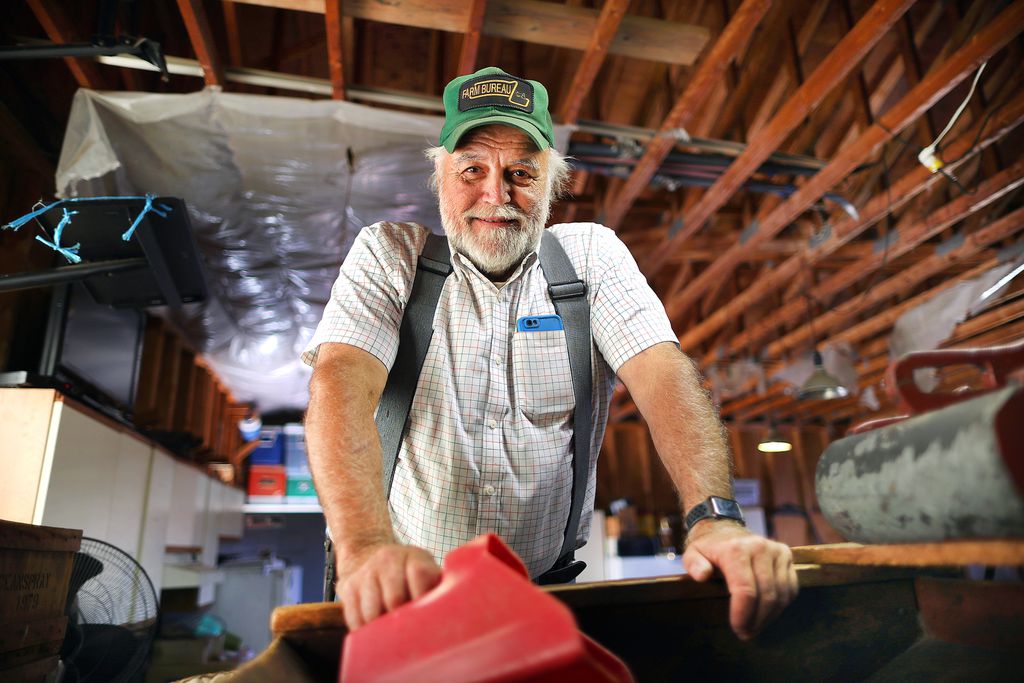For more than a month, the campaign championing a special tax on the wealthy has blasted TV airwaves with a simple message: “They pay less and we pay more.”
“They” are the people who earn more than $1 million a year, as one ad intones and pans to a shot of a businessman boarding a private jet. The implication is that they can afford Question 1, a ballot initiative that would create a 4 percent surcharge on these millionaires.
Yet the first ad from the opposition, which debuted last week, paints a different picture of who could get hit with the proposed hike: farmers, lobstermen, small business owners, and even homeowners.
That’s because “they” include so-called one-time millionaires. According to an analysis by Tufts University’s Center for State Policy Analysis, the pool of wealthy households in Massachusetts changes dramatically year to year with only about half consistently earning incomes of more than $1 million. The rest are people who earn more than $1 million just once because of profits they’ve made from selling a business, home, or long-term investment.
Leo Cakounes believes he will fall into that tax bracket when he gets ready to retire and sells his organic cranberry farm in Harwich. The 65-year-old stars in the opposition’s first TV ad, saying that the ballot question “makes no sense.”
In an interview, Cakounes, 65, would not divulge how much more he might pay in taxes, but he says any increase would be too much. Simply put, for every additional $1 million he earns, Cakounes would pay an extra $40,000 in taxes.
He doesn’t think of himself as rich. Cakounes said that in the three decades he has operated a farm he has never made $1 million in a year and chafes at what he describes as a “this will not affect you” attitude about Question 1.
“That’s baloney,” he said. “I’ve worked damn hard to be where I am today, damn hard. I’ve saved and scrimped and cut back. Now I am being penalized again when this goes through.”
Ann Sullivan, who owns Metro Equipment Corp. in Braintree, also does not consider herself a millionaire, but she will be classified as one when she sells her excavation business. She also appears in a TV ad campaign launched by the opposition, which is being funded by a coalition of business groups, and small and big business owners.
Sullivan figures that if she sells her company and nets $2 million, the first million will be taxed at the rate everyone pays, which is 5 percent, and then the next million dollars would be taxed at 9 percent. Instead of paying $50,000 in taxes on the next million dollars, she would owe $90,000 if the ballot question passes.
Although a $2 million payday may seem like a lot of money to most people, Sullivan, 61, said the sale proceeds would constitute her retirement.
“This is my nest egg,” Sullivan said. “When I stop working, I stop working. So every dollar is going to count.”
With the state experiencing a record budget surplus and taxpayers due back nearly $3 billion in refunds, Sullivan doesn’t understand why Massachusetts needs more revenue. The millionaire tax is expected to raise an estimated $2 billion annually, money that Beacon Hill is expected to spend on education and transportation.
“The state has lots of money now, and now is not the time to be looking at my nest egg. Just leave my nest egg alone,” Sullivan said. “Small businesses have enough on their plate. We’re all trying to recover from two years of misery. We could use help rather than a hindrance.”
All told, an estimated 26,200 households in Massachusetts are expected to have incomes of more than $1 million in 2023, according to the Tufts analysis. That represents less than 1 percent of all taxpayers.
As the debate over Question 1 heats up, voters will also be confronted with whether the ballot initiative represents a tax on the middle class. Broadly speaking, no, it doesn’t.
But a segment of the upper-middle class — such as a household with a mid-six-figure income — could face higher taxes when they sell a second home, according to a Tax Foundation analysis released last week. Long-term capital gains would be taxed at 9 percent, instead of 5 percent.
Still, a tiny fraction of people falls into this category. Less than 1 percent of Massachusetts home sales result in a gain of more than $1 million, according to the Massachusetts Budget Policy & Center.
Let’s be real here. It’s hard to have sympathy for people who stand to make a lot of money from selling their businesses or second homes. A team of good accountants and lawyers can offer advice on how to avoid paying the surtax, or at least minimize the impact. That’s what rich people do — and it’s how they stay rich.
At the heart of the debate over Question 1 is that someone has to sacrifice for the greater good. Those voting yes believe the wealthy don’t pay their fair share in taxes, and the law needs to be changed. Those against the measure will wonder if it’s fair to only raise taxes on a small group of people. So far, polling indicates that Question 1 will pass by a modest margin.
How should you vote? It will come down to whether you’re a millionaire or not, and whether you know one or expect to earn $1 million in a single year. In an entrepreneurial economy and a housing market like ours, the answer is perhaps not that clear.
Shirley Leung is a Business columnist. She can be reached at shirley.leung@globe.com.


